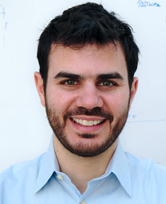
<br />
Part of the speaker series on misinformation, co-sponsored by the NULab at Northeastern University.
In this talk David Rand will give an overview of his work assessing various interventions against misinformation and “fake news” on social media. He will start by briefly discussing the limitations of two of the most commonly discussed approaches: warnings based on professional fact-checking, which are not scalable and we find can increase belief in, and sharing, of misinformation which is not flagged (link); and emphasizing publishers, which is (surprisingly) ineffective because untrusted outlets typically produce headlines that are judged as inaccurate even without knowing the source (link). He will then turn to two promising approaches: nudging social media users to think about accuracy, which he shows increases the quality of news shared in a field experiment with over 5000 Twitter users who previously tweeted Breitbart links (link), and using crowdsourcing to identify misinformation, as he shows that crowds of laypeople produce judgments that are highly aligned with professional fact-checkers (link).
David Rand is the Erwin H. Schell Professor and an Associate Professor of Management Science and Brain and Cognitive Sciences at MIT Sloan, and the Director of the Human Cooperation Laboratory and the Applied Cooperation Team.
Bridging the fields of behavioral economics and psychology, David’s research combines mathematical/computational models with human behavioral experiments and online/field studies to understand human behavior. His work uses a cognitive science perspective grounded in the tension between more intuitive versus deliberative modes of decision-making, and explores topics such as cooperation/prosociality, punishment/condemnation, perceived accuracy of false or misleading news stories, political preferences, and the dynamics of social media platform behavior. His work has been published in peer-reviewed journals such Nature, Science, Proceedings of the National Academy of Sciences of the United States of America, the American Economic Review, Psychological Science, and Management Science. He has received widespread attention from print, radio, TV and social media outlets, and has also written popular press articles for outlets including the New York Times, Wired, New Scientist, and the APS Observer. He was named to Wired magazine’s The Smart List 2012: “50 people who will change the world,” chosen as a 2012 Pop!Tech Science Fellow, received the 2015 Arthur Greer Memorial Prize for Outstanding Scholarly Research, and was selected as fact-checking researcher of the year in 2017 by the Poytner Institute’s International Fact-Checking Network. Papers he has coauthored have been awarded Best Paper of the Year in Experimental Economics, Social Cognition, and Political Methodology.
David received his BA in Computational Biology from Cornell University in 2004 and his PhD in Systems Biology from Harvard University in 2009, was a post-doctoral researcher in Harvard University’s Department of Psychology from 2009 to 2013, and was an Assistant and then Associate Professor of Psychology, Economics, and Management at Yale University prior to joining the faculty at MIT.